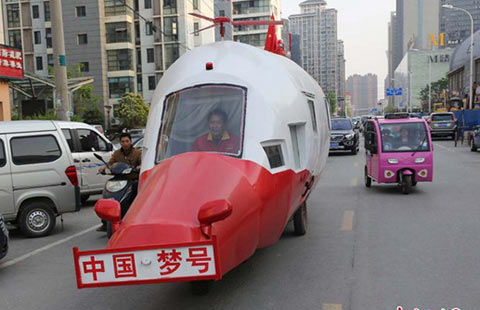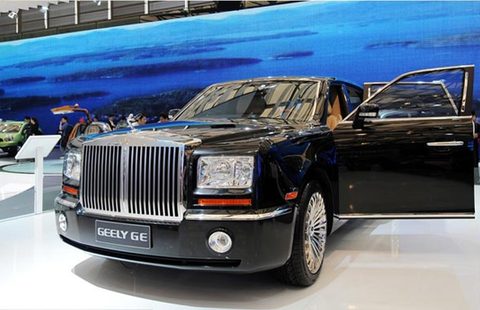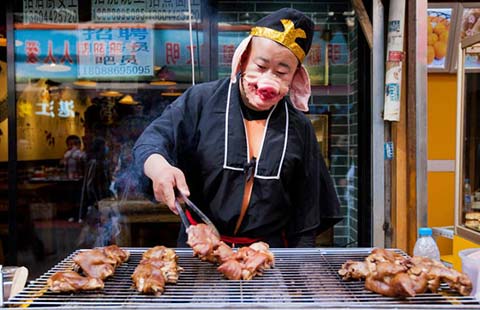China's 'Hollywood' shines in business
By Huang Ying in Hengdian, Zhejiang (China Daily) Updated: 2012-05-28 09:26
|
 |
|
Yuki Hsu (left), a Chinese pop singer, being interviewed at a news conference at Hengdian World Studios. Events like this happen every day at China's "Hollywood", where there has been outdoor scenery available free for domestic and foreign crews to shoot movies and TV dramas since 2000. The teams that visit Hengdian for the variety of shooting locations have created a huge demand for the service sector in the town, boosting its growth. [Photo / China Daily] |
Sprinkling of stardust pulls in the tourists, making service sector grow
Entertainment celebrities attract not only huge crowds of fans but bring about opportunities for the development of the service sector. This has been perfectly demonstrated by Hengdian, a town in East China's Zhejiang province.
Many Chinese people know of the Hengdian World Studios. However, its parent, Hengdian Group, was originally established as an industrial enterprise and its business mainly deals with industries including electronics, pharmaceuticals and chemicals.
Launched in 1996, Hengdian World Studios was founded by Xu Wenrong, a primary school dropout who became a legendary entrepreneur and the owner of Hengdian Group.
The company formed a relationship with the film and TV industry by chance when director Xie Jin called for the building of shooting sets for the film The Opium War in 1996. With Xu's approval and support, Hengdian Group created a 19th-century Guangzhou street scene covering 319 mu (21.3 hectares) in just more than four months, which has developed into the world's largest film studio.
Hengdian Group invested more than 7 billion yuan ($111 million) in the construction of the set. It boasts 28 large-scale scenic spots and 11 indoor studios. The outdoor scenic spots include buildings featuring the architecture of the Ming and Qing dynasties (1368-1911), an imitation of the Palace of the Qin Dynasty (221-206 BC), a Guangzhou street scene, a Hong Kong street scene and a riverside scene featuring Tomb Sweeping Day (Ching Ming Festival).
A move that distinguished Hengdian World Studios from other studios in the country came in 2000, when Hengdian World Studios Co, the operator of the studios, made it free to shoot outdoor scenes there. This attracted a significantly growing number of cast and crew to China's "Hollywood".
Over the past eight years, a total of more than 900 crew have visited Hengdian studios to make movies and TV dramas, including some from foreign countries. The number of extras recommended to crew through the extras union under the company's control exceeded 4 million in recent years, according to the Hengdian Chinese Film Industrial Park, a national organization founded in 2004 to promote the development of the film and TV drama industries.
The teams that visit Hengdian for the variety of shooting locations created a huge demand for the service sector in the town, boosting its growth. The tertiary industry in the town of Hengdian generated more than 6 billion yuan in revenues last year, accounting for one third of the town's gross domestic product. The job opportunities created in the service sector exceeded 36,000, said Zhu Guoqiang, deputy director of the administration committee at Hengdian Chinese Film Industrial Park.
Tourism, catering and hotel services, costume-making and rental for film equipment and props constitute the majority of the service sector in the town.
What these industries share in common is that they are all driven by the TV and movie business in Hengdian.
"Initially tourists visited Hengdian studios primarily out of curiosity about how TV plays or films are made. Now they choose to come here because we offer performances," said Zeng Yulin, spokesman for Hengdian World Studios Co.
The live performances at the studios acted as the development engine of its tourism industry. For example, a show that demonstrates the beauty and power of tai chi was introduced in 2007 and has blossomed into a must-watch experience for tourists. The improvement was guided by Chen Weiya, the deputy chief director of the opening and closing ceremonies of the Beijing Olympics in 2008.
By the end of March 2011, the show had been performed more than 1,800 times, entertaining 4 million people. Statistics from the industrial park showed ticket sales of the show generated more than 100 million yuan in 2010, and additional purchases driven by it amounted to several hundred million yuan.
There are 14 featured shows scattered at different scenic locations around the studios. They derive from the characteristics of the location or are inspired by the films or TV dramas shot there.
"All the shows at Hengdian studios are performed for limited periods. We are continuously creating something new," Zeng said.
That's why every time a tourist comes to Hengdian, he or she will have a different experience, he added.
In order to promote its travel business, Hengdian World Studios Co established its own marketing company for tourism in 2003. So far 46 branches that focus on marketing have entered a large number of cities nationwide.
These branches build partnerships with local travel agencies and provide them with the latest tourism policy and products in Hengdian to increase the number of visitors.
Advertising on buses is another way to reach potential clients. From 2004 to 2009, the studios invested more than 50 million yuan in commercial advertisements on 1,000 buses in cities including Shanghai, Nanjing, and Fuzhou.
The number of tourists over the past few years witnessed an almost continuous rise. They climbed from 4.78 million in 2007 to 8.41 million in 2010 with a decline to 5.84 million in 2009 because of the global financial crisis that year. As many as 10.8 million tourists at home and abroad visited the studios last year, creating a year-on-year growth of 28 percent. The revenue and profit of the company saw a 51 percent and 68 percent growth respectively from a year earlier.
"A small grocer once sold more than 170 boxes of mineral water on May 1," said Zeng of Hengdian World Studios Co. Zeng is also the editor in chief of Hengdian Tourism Magazine.
- Riskiest bonds flagged by Haitong after Tianwei default
- Investment by Hormel to grow as meat demand rises
- Bombardier facility to take off in Tianjin
- Chinese banks must cut coal lending, shift to cleaner businesses
- Direct flight to link China's Shenyang, Moscow
- China, Cambodia pledge closer cooperation
- China's ZTE launches 4G terminal devices in Ethiopia
- China's airlines report recovering profitability

















